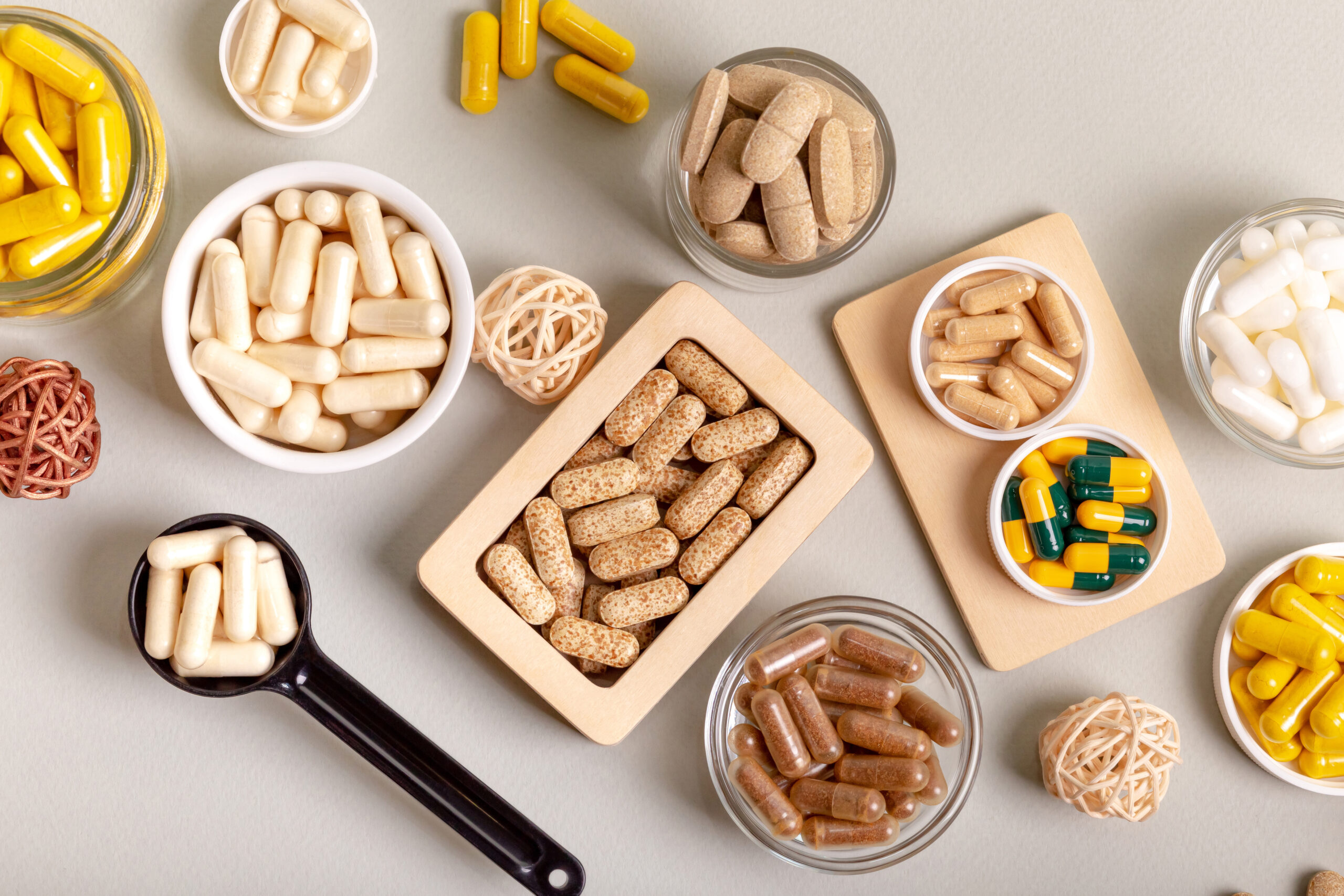Low testosterone levels can significantly affect your quality of life, leading to reduced muscle mass, increased body fat, fatigue, and diminished libido. If you’re looking to boost your testosterone levels naturally, these supplements can help.
Vitamin D
Vitamin D is a fat-soluble vitamin crucial for maintaining healthy bones and immune function. Recent studies suggest it also plays a significant role in testosterone production. A study published in the journal Hormone and Metabolic Research found that men deficient in vitamin D had lower testosterone levels compared to those with sufficient levels. Additional research showed an increase in male testosterone levels over a 12-month period with vitamin D supplementation. Vitamin D receptors are found in the testes, therefore playing a direct role in regulating testosterone production. Adequate levels of vitamin D can stimulate testosterone production and improve overall endocrine health.
Zinc
Zinc is an essential mineral that supports various bodily functions, including immune response, cell division, and hormone production. A study published in the Journal of Trace Elements in Medicine and Biology showed that zinc supplementation in marginally zinc-deficient men led to a significant increase in serum testosterone levels. Zinc is involved in multiple aspects of cellular metabolism. It is crucial for the function of hundreds of enzymes and plays a role in immune function, protein synthesis, and DNA synthesis. Zinc also inhibits the aromatase enzyme, which converts testosterone to estrogen.
Boron
Boron is a trace mineral that influences the metabolism of steroid hormones, including testosterone. A study in the Journal of Trace Elements in Medicine and Biology found that boron supplementation increased free testosterone levels and decreased estradiol levels in healthy male participants . Additional studies also point to the positive affects that boron has on the body’s use of testosterone. Boron enhances the biological half-life and bioavailability of testosterone by reducing the amount of sex hormone-binding globulin (SHBG) that binds to testosterone.
DHEA (Dehydroepiandrosterone)
DHEA is a hormone produced by the adrenal glands. It serves as a precursor to both male and female sex hormones, including testosterone. Research published in the Journal of Clinical Endocrinology & Metabolism found that DHEA supplementation can increase testosterone levels in aging men. DHEA is converted into testosterone and estrogen in the body, helping to balance hormone levels. It also has anti-aging properties and can improve mood and cognitive function.
Magnesium
Magnesium is a vital mineral involved in over 300 biochemical reactions in the body, including muscle and nerve function, protein synthesis, and testosterone production. A study in the journal Biological Trace Element Research showed that magnesium supplementation could increase free and total testosterone levels in sedentary and active men. Magnesium enhances the bioactivity of testosterone and inhibits the binding of testosterone to sex hormone binding globulin (SHBG), thereby increasing the availability of free testosterone in the body.
Ashwagandha
Ashwagandha (Withania somnifera) is an adaptogenic herb traditionally used in Ayurvedic medicine to enhance vitality and reduce stress. A study published in the Journal of the International Society of Sports Nutrition found that ashwagandha supplementation significantly increased testosterone levels and muscle mass in healthy adult men . Another study in the American Journal of Men’s Health showed that ashwagandha improved sperm quality and increased serum testosterone levels . Additionally, ashwagandha has been shown to reduce cortisol levels, a stress hormone that negatively affects testosterone production while directly stimulating the production of testosterone by the testes.
References
- Pilz, S., et al. (2011). Effects of vitamin D on testosterone levels in men. Hormone and Metabolic Research, 43(3), 223-225.
- Te, Liger, Liu, Junsheng, Ma, Jing Ma, Wang, Shusong. (2022). Correlation between serum zinc and testosterone: A systematic review. Journal of Trace Elements in Medicine and Biology, Vol 76. Available from https://www.sciencedirect.com/science/article/abs/pii/S0946672X22002048?via%3Dihub
- Naghii, M. R., et al. (2011). Comparative effects of daily and weekly boron supplementation on plasma steroid hormones and proinflammatory cytokines. Journal of Trace Elements in Medicine and Biology, 25(1), 54-58.
- Hunt, C. D., et al. (1991). Dietary boron modifies the effects of vitamin D3 nutritional status on indices of energy substrate utilization and mineral metabolism in the chick. Environmental Health Perspectives, 73, 203-210.
- Morales, A. J., et al. (1994). Effects of replacement dose of dehydroepiandrosterone in men and women of advancing age. Journal of Clinical Endocrinology & Metabolism, 78(6), 1360-1367.
- Christiansen, J. J., et al. (2011). The effects of DHEA supplementation on testosterone levels in aging men. Aging Male, 14(1), 42-46.
- Cinar, V., et al. (2011). The effects of magnesium supplementation on testosterone levels of athletes and sedentary subjects at rest and after exhaustion. Biological Trace Element Research, 140(1), 18-23.
- Wankhede, S., et al. (2015). Examining the effect of Withania somnifera supplementation on muscle strength and recovery: a randomized controlled trial. Journal of the International Society of Sports Nutrition, 12, 43.
- Ahangarpour, A., et al. (2018). The role of Withania somnifera (Ashwagandha) in the prevention and treatment of male infertility: A review. American Journal of Men’s Health, 12(4), 1318-1327.


